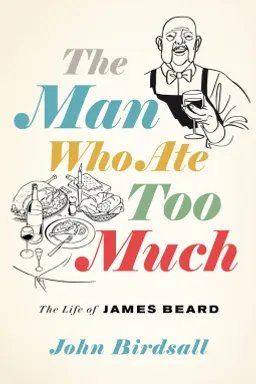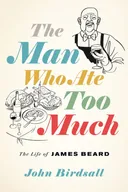Notifications

After World War II, a newly affluent United States reached for its own gourmet culture, one at ease with the French international style of Escoffier, but also distinctly American. Enter James Beard, authority on cooking and eating, his larger-than-life presence and collection of whimsical bow ties synonymous with the nation’s food for decades, even after his death in 1985.
In the first biography of Beard in twenty-five years, acclaimed writer John Birdsall argues that Beard’s struggles as a closeted gay man directly influenced his creation of an American cuisine. Starting in the 1920s, Beard escaped loneliness and banishment by traveling abroad to places where people ate for pleasure, not utility, and found acceptance at home by crafting an American ethos of food likewise built on pas ...Read More


After World War II, a newly affluent United States reached for its own gourmet culture, one at ease with the French international style of Escoffier, but also distinctly American. Enter James Beard, authority on cooking and eating, his larger-than-life presence and collection of whimsical bow ties synonymous with the nation’s food for decades, even after his death in 1985.
In the first biography of Beard in twenty-five years, acclaimed writer John Birdsall argues that Beard’s struggles as a closeted gay man directly influenced his creation of an American cuisine. Starting in the 1920s, Beard escaped loneliness and banishment by traveling abroad to places where people ate for pleasure, not utility, and found acceptance at home by crafting an American ethos of food likewise built on pas ...Read More
Ratings
Ratings